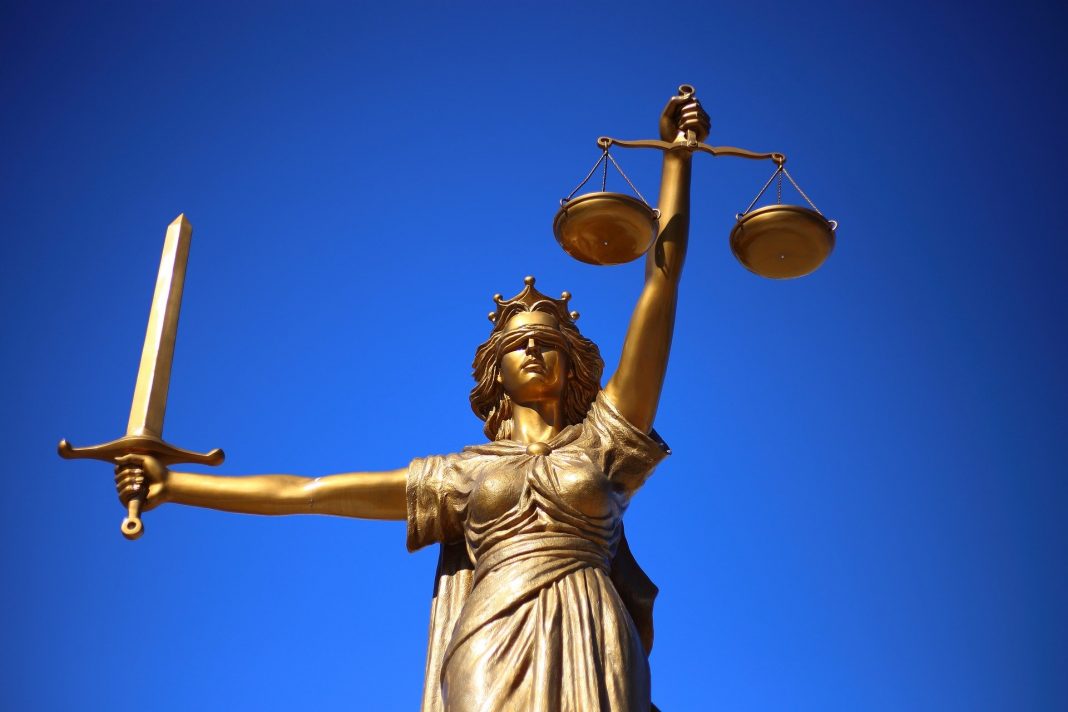The Ankara Chief Public Prosecutor’s Office on Friday issued detention warrants for 60 lawyers on terror charges.
According to a statement released by the office, detention warrants were issued for 48 lawyers, seven trainee lawyers, four dismissed judges and a law school graduate over their alleged affiliation with the Gülen movement.
The Turkish government accuses the movement of orchestrating a failed coup in 2016 and designates it as a terrorist organization.
The lawyers followed up on “the cases of Gülen-affiliated defendants,” and “tried to manipulate the trials to the benefit of the terrorist organization under the guise of the practice of law,” the prosecutor’s statement read.
Critics label the country’s counterterrorism law as broad and vague due to the definition of “terrorism” in Article 1.
The counterterrorism law could “be used for politically motivated prosecutions of political opponents, human rights defenders, and journalists, particularly for alleged ‘membership of a terrorist organization,” UN rapporteurs stated in a periodic review back in January.
Rights groups and lawyers criticized the detention warrants and claimed that the latest move was part of a broader strategy to obliterate the right to a defense for many who are jailed on terror charges.
“An assault on lawyers in Turkey was launched after the failed 2016 coup. This assault started with the arrest of the chair of the Konya Bar Association and 20 lawyers and has been ongoing since then,” said Barış Çelik, a lawyer who spoke to Turkish Minute.
“Up until the present day, nearly 1,600 lawyers have been detained, more than 600 have been arrested and 441 have been convicted over activities related to the practice of law.”
Another law practitioner, Ömer Turanlı, told Turkish Minute that even though lawyers visited the courthouse regularly, they were rounded up by 1,500 police officers.
“The police detained pregnant women, handcuffing them behind their back,” Turanlı said.
“Due process was ignored, case files the lawyers had worked on were gathered as evidence and the lawyers were denied the right to choose their legal representatives, restricted instead to a special lawyer assigned by the prosecution,” Turanlı said. “All this unlawfulness aims to silence lawyers.”
Nurullah Albayrak, a Turkish lawyer in exile, said Turkey has been targeting fundamental human rights for a while now and that the latest raids against the lawyers lay bare the scale of the crackdown Ankara has embarked on.
“The government wants to silence and subjugate lawyers, who are an essential safeguard of rights and freedoms for citizens,” Albayrak said.
“Turkish President Recep Tayyip Erdoğan on Sept. 1 gave a speech to judges and prosecutors in which he signaled an upcoming campaign to silence lawyers. And now 60 lawyers are being detained.”
The detention warrants came following Erdoğan’s call for the suspension of lawyers accused of links to terrorism.
Following the death of lawyer Ebru Timtik, who was jailed on terror charges and had been on a hunger strike for 238 days to demand a fair trial, the Istanbul Bar Association hung a picture of her outside its headquarters in protest.
“It is very painful that the bars, which should be institutions of justice, have turned into the backyard of terrorist organizations,” Erdoğan said on Sept. 1 in response to the Istanbul Bar protest.
“We should be discussing whether methods such as expulsion from the profession should be introduced for lawyers. It is unacceptable for lawyers to carelessly stand so close to terrorists.”
“Turkey will take action to cut the bloody link between lawyers and terrorism,” the T24 news website quoted Erdoğan as saying.
“Ankara police reportedly arrest up to 60 on suspicion of being a ‘FETÖ [derogatory acronym used by Ankara to refer to the Gülen movement as a terrorist organization] lawyers’ structure.’ Hard not to see this as a part of the govt aim to bring the legal profession under control and target lawyers on the basis of which clients they represent,” Emma Sinclair-Webb, the Turkey director of Human Rights Watch (HRW), tweeted about the development.
In August 2019, 51 of Turkey’s 81 bar associations boycotted a judges’ ceremony at Erdogan’s presidential palace.
The choice of venue, they said, signaled a lack of separation of powers and violated their code of ethics.
In July, in a move seen by critics as a bid to subjugate lawyers, the Turkish parliament approved a bill that enabled the establishment of multiple bar associations.
Critics maintain that the legislation will split the lawyers’ bars along the lines of political affiliation.
“We are determined to build a bar association system that is more democratic, more pluralistic and more representative,” Erdoğan said at the time.
The critics fear a blacklisting of lawyers who are not aligned with the government as the country has already jailed 570 lawyers and prosecuted 1,480 in total since the abortive 2016 coup, according to a UN report.
The UN report indicates that rapporteurs “observed a pattern of persecution of lawyers representing individuals accused of terrorism.”
“The increase in cases of lawyers being threatened and prosecuted has occurred in a context where the Turkish authorities have also imposed rigorous restrictions on the right of individuals in pretrial detention accused of terrorist crimes to benefit from legal counsel and to prepare for defending themselves in court,” a Human Rights Watch statement read.
